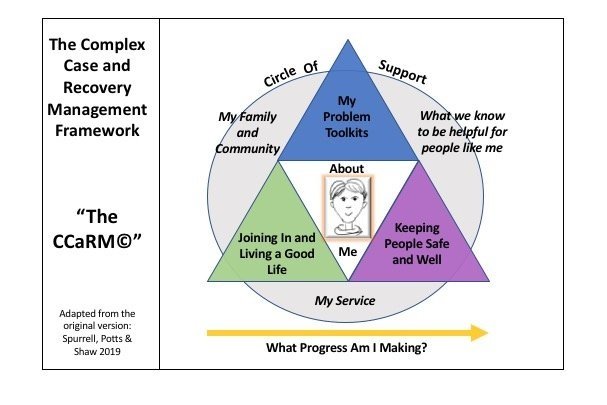
BuildingYour Care Strategy:
The Pickle, The Dilemma, The Design
A Person’s Pickle
A person’s pickle is the situation they find themselves in, with all its complexity and distress.
That situation will have emerged over time, and will continue to change.
There are many factors that drive complexity. These may include, for example, having multiple health conditions, developmental difficulties or past traumatic experiences. Areas of social difficulty or deprivation, and indeed complexities arising from previous experience with services may also be present.
When It’s Complex….
It can be a challenge for practitioners to capture “someone’s pickle”, or predicament, in terms all can relate to.
It can then be a challenge to usefully frame actions to bring about stabilisation and optimisation,
and to maybe in time support people in generating something of a fresh start in their lives.
That’s where Your Care Strategy comes in…..
The Practitioner’s Dilemma
When care is complex:
Of the many tools and ideas out there, which ones will really help?
How do I get the many other parties involved working together?
What about the views of external stakeholders and commentators?
How do we reconcile a range of diverse policies, procedures, guidelines and protocols that will apply?
Meanwhile:
Care needs to be person centred, collaborative and Integrated.
Practitioners vary in experience and confidence.
What platforms can help quickly navigate these complexities?
Your Care Strategy Design
Your Care Strategy is an approach that brings tools from service logic, service design and democratic learning to the task of assembling better care strategies with service users, families and other practitioners involved.
The approach draws on extensive experience in the field, along with the development of The CCaRM Framework© for person centred care strategy building. The approach applies the principles of value based healthcare to frame 6 key themes to serve as a platform for case level collaboration.
“The complex case and recovery management framework: The CCaRM©.”
Adapted with permission from Spurrell M, Potts L & Shaw A. (2023)


